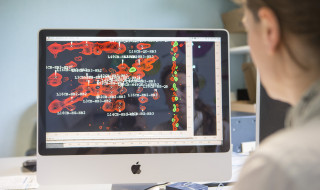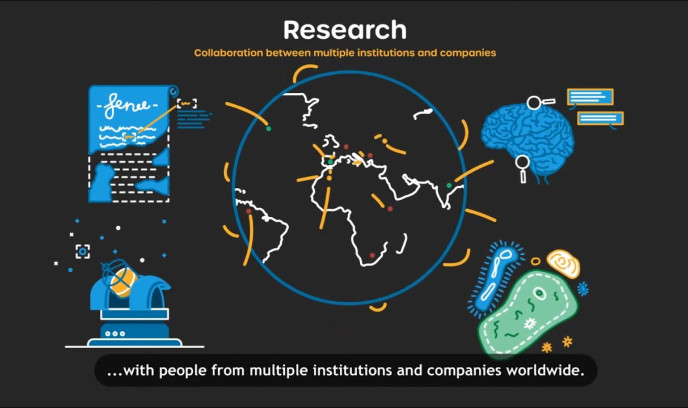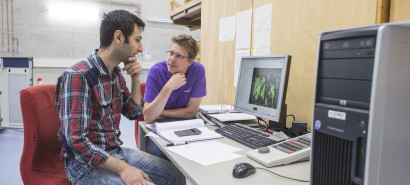SURF Research Access Management
Safe and easy access to research services
SURF Research Access Management is a platform that allows institutions to delegate access to research services for researchers. It enables quick, easy, and secure management of research collaborations. This service is built on established international agreements for authorization and authentication in education and research.

Advantages
Insight and control
As an institution, you have an overview in one place of which research collaborations exist within your institution, who is a member and which services are used by them.
Save time
Let researchers arrange who belongs to their collaboration.
Future-proof
A national platform, based on internationally agreed standards such as AARC and EOSC, as a gateway towards the international research community.
Flexible
Form your own policies and procedures based on SRAM's flexible roles and functionalities.
Safe
All users from inside and outside your institution log in with multi-factor authentication.
Do you have a question about SURF Research Access Management? Get in touch.
About SURF Research Access Management
Researchers are increasingly working together: within their own institution, with other institutions or companies, and at home and abroad. Collaborations then want joint secure access to (cloud) applications, computing clusters, datasets or data storage. SURF Research Access Management provides Authentication and Authorisation as a Service for researchers and research supporters. It arranges secure access for web and non-web services, using institutional accounts wherever possible.
Video: SURF Research Access Management in 2 minutes
Want to know what SURF Research Access Management can do for your institution and/or research? Watch the video.
Using this service: 3 options
Your institution can use SURF Research Access Management (SRAM) in different ways:
- allow your researchers to become members (by invitation) of collaborations (by others),
- as an institution, use SRAM to allow your researchers (or support staff) to create and manage collaborations themselves,
- connect your own research services to SRAM so that you can give users from your own institution and beyond invitation-based access.
Further information
- For researchers
Are you a researcher and want to know how to use this service?
- For service providers
Do you offer a research service and want to connect it?
How can researchers working with sensitive patient data adhere to privacy rules while making their data FAIR, so that their research can have as much impact on society as possible?
Rates
View the tariffs of this service.
SURF Services and rates 2026
View the tariffs of this service.
SURF Services and rates 2026



